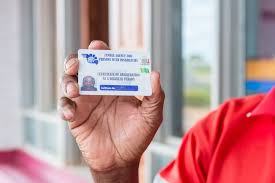ZAPD Cracks Down on Abuse of Disability Identity Cards
In response to concerning reports of individuals exploiting the benefits associated with Disability Identity Cards, the Zambia Agency for Persons with Disabilities (ZAPD) has issued a stern warning against such misconduct.
Established under the Persons with Disabilities Act No. 06 of 2012, ZAPD plays a crucial role in planning, coordinating, and administering services for persons with disabilities across the country.
The Disability Identity Card, mandated by Section 15 of the Act, serves as a legal document for identifying persons with disabilities, akin to a driver’s license.
It also functions as proof of disability, eliminating the need for further medical documentation in various situations, including applying for assistive devices, tax exemptions, or social security services.
Expressing deep concern over the exploitation of these cards for personal gain through false pretenses, ZAPD has strongly condemned such actions. The agency warns potential offenders to cease these activities immediately, emphasizing that legal consequences will follow for those who continue to engage in such deceitful practices.
ZAPD also commended law enforcement agencies for their vigilance in apprehending perpetrators and ensuring justice is served. Additionally, the agency clarified misinformation circulating in the media regarding the employment status of Ms. Florence Mangani Chanda, asserting that she has never worked for ZAPD in any capacity.
Operating under principles of morality, ethics, human dignity, confidentiality, equity, and teamwork, ZAPD remains steadfast in its commitment to promoting the well-being and rights of persons with disabilities. With a focus on regulating and coordinating inclusive disability services, the agency aims to uphold integrity and fairness in its operations.
The warning issued by ZAPD serves as a reminder of the importance of respecting the integrity of Disability Identity Cards and ensuring they are used appropriately to support individuals with disabilities rather than being exploited for personal gain.



